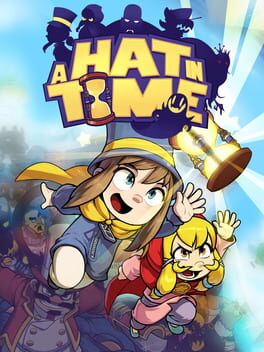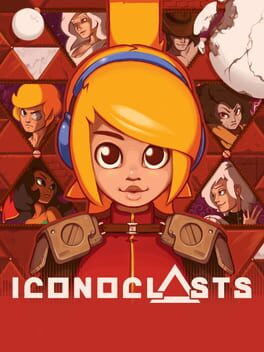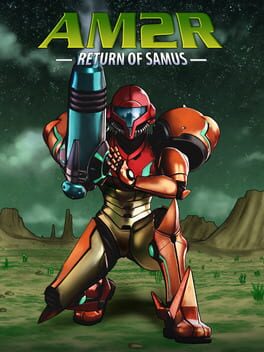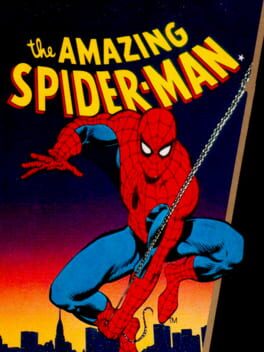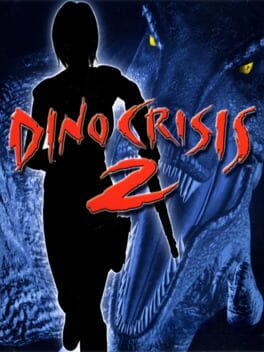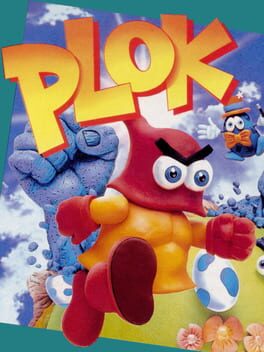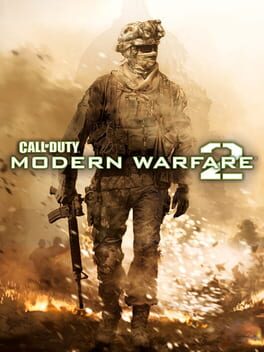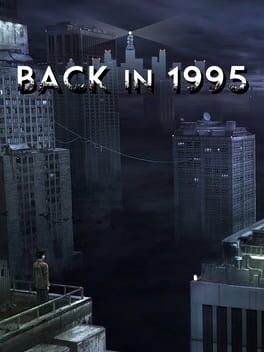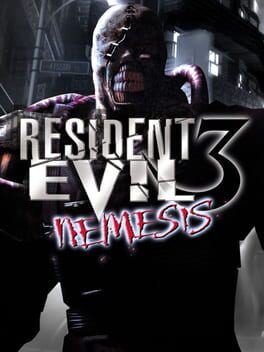jebhappy
109 Reviews liked by jebhappy
A Hat in Time
2017
It's a subpar platformer propped up by about a dozen coats of polish. After thinking about it, my main issue is with the game's moveset which, although it may seem to be the opposite at a surface level, is actually pretty restrictive. Let me put it this way. In the air, you have three options: a double jump, a dive, and a flip. However, the flip can only be done directly after a dive, and the double jump can't be done if you've already used a dive. What this means is that if you want to use all of your moves in a single jump, there's only one order you can do them in: double jump -> dive -> flip. This ends up making it so that jumps can't be designed in a way that would require you to use your moves in a different order, leading to just the same set of inputs over and over again for the entire game. What's more inexcusable is the fact that it doesn't even attempt any original mechanics, it's all just so basic. Moving platforms, springs, ropes to swing on, there's nothing new here to figure out. Combine this with the poor moveset and it creates a perfect storm of frustratingly low difficulty. I'd have a hard time believing anyone who has played a 3D platformer before would struggle with any part of this game, and it's not like it even punishes you for dying in the first place. To top it off there's also the badge and yarn systems. Neither of them are well-thought-out at all and their usefulness as collectables ends after about a fifth of the game, which ends up making them feel like huge misses in an understanding of what makes these types of games good.
The counterargument to my thoughts here would be that the game isn't supposed to be a platformer first and foremost and instead an adventure game where the main appeal is reaching varied environments and meeting a unique cast of characters, but I'd disagree with this as well. Something like Psychonauts or Super Mario Galaxy puts the actual platforming in the backseat in favor of interesting experiences, which I'm fine with, but A Hat in Time goes even further and ends up crossing a line. The platforming here feels like a formality, like the sequence of events was thought up first and the platforming is just there to fill in the gaps. Pyschonauts has unique mechanics depending on whose brain you're currently occupying, and Super Mario Galaxy consistently uses its outer space setting to vary up the gameplay. Take away the presentation from A Hat in Time and every world is the exact same, and that's my bottom line. The particle effects, the loading screen art and other 2D assets, the soundtrack, the UI. It's all fantastic but none of it works in service of the goal of creating a good platformer.
The counterargument to my thoughts here would be that the game isn't supposed to be a platformer first and foremost and instead an adventure game where the main appeal is reaching varied environments and meeting a unique cast of characters, but I'd disagree with this as well. Something like Psychonauts or Super Mario Galaxy puts the actual platforming in the backseat in favor of interesting experiences, which I'm fine with, but A Hat in Time goes even further and ends up crossing a line. The platforming here feels like a formality, like the sequence of events was thought up first and the platforming is just there to fill in the gaps. Pyschonauts has unique mechanics depending on whose brain you're currently occupying, and Super Mario Galaxy consistently uses its outer space setting to vary up the gameplay. Take away the presentation from A Hat in Time and every world is the exact same, and that's my bottom line. The particle effects, the loading screen art and other 2D assets, the soundtrack, the UI. It's all fantastic but none of it works in service of the goal of creating a good platformer.
Iconoclasts
2018
You can find better Metroidvanias than Iconoclasts, but what you won't find is another metroidvania-style game that is so invested in the ways people treat their labor, their neighbors, and their gods. The fact that the game isn't riddled with so many power-ups and resources to obtain is part of the point: in a world so ravaged by our greed, stubbornness, and zealous indifference, what more can we hope to obtain from this dying land?
I wish more games endeavored to tell such a captivating narrative. I also wish the people playing games put more thought into the stories they're experiencing. A medium with this many dystopias deserves to have a few more stories dedicated to how they got that way.
I wish more games endeavored to tell such a captivating narrative. I also wish the people playing games put more thought into the stories they're experiencing. A medium with this many dystopias deserves to have a few more stories dedicated to how they got that way.
The biggest theme I could recognize in Metroid 2 is destruction. We take control of Samus on a mission to exterminate every single Metroid on planet SR388. The deeper you venture into the cavernous depths of Metroid 2, the lonelier it becomes. This feeling of isolation, pain and fear is only true to this fan-remake of the original Metroid 2, the latter of which is only slightly less grating than Metroid on the NES. It's impressive how such a mediocre game like Metroid 2 can be marginally improved by the passion and effort of fans.
As shown in the first few sentences of this review, I struggle even calling Another Metroid 2 Remake by its name and instead refer to it as Metroid 2. The reason for which is simple: This is the definitive and most refined version of Metroid 2 that has been released. It feels extremely familiar yet fresh to me, as someone who played Metroid: Zero Mission prior to this one. The controls, UI and movement are not unlike Zero Mission's, albeit with improvements to the menu, map and overall control of Samus.
The world is menacing and dark, getting lonelier and scarier the deeper you descend into SR388. All of this thanks to the amazing work of Milton Guasti, who somehow took a mediocre game and transformed it into something truly enjoyable. Not much to say other than hats off to Milton Guasti once again, who by sheer passion and dedication, crafted the definitive way to experience Metroid 2 that will likely never be topped and stands amongst the best installments of the franchise, without even being official.
As shown in the first few sentences of this review, I struggle even calling Another Metroid 2 Remake by its name and instead refer to it as Metroid 2. The reason for which is simple: This is the definitive and most refined version of Metroid 2 that has been released. It feels extremely familiar yet fresh to me, as someone who played Metroid: Zero Mission prior to this one. The controls, UI and movement are not unlike Zero Mission's, albeit with improvements to the menu, map and overall control of Samus.
The world is menacing and dark, getting lonelier and scarier the deeper you descend into SR388. All of this thanks to the amazing work of Milton Guasti, who somehow took a mediocre game and transformed it into something truly enjoyable. Not much to say other than hats off to Milton Guasti once again, who by sheer passion and dedication, crafted the definitive way to experience Metroid 2 that will likely never be topped and stands amongst the best installments of the franchise, without even being official.
This game is a whole half hour long or so (It took me 27 minutes), so there isn't a lot to say here. I commend Rare for trying to give this game some meat with a unique boss at the end of each world in a bit of a Mega Man style, but it wasn't exactly uncommon on the original Game Boy (Super Mario Land 1 had this as a launch title, let alone many other games) and the fights are fairly bad. They range from stupid simple (stand to the far right vs. Green Goblin and unless you miss hitting him on the pattern you cannot be hit) to extremely frustrating (The final boss, my god). Probably the most annoying thing is that this was a beat 'em up / platformer hybrid, but your attack range feels tiny: I particularly found it difficult to hit bosses without taking damage back, sometimes without it even being during their attack but just due to the hitbox of it being so small that I got too close and got hit. I would not have beaten this game were it not for the fact that when you die and get to full health, boss HPs retain their damage. I was on my very last continue when I won.
Basic enemies have this issue where due to your range, all fights are one of two things: The enemies just run into your fist (the bats in the subway level and some other flying enemies) OR they come at you and due to your range you either have to hit during a small window before they ever attack or get hit, there's very few alternative attacks and the jumping is too chunky to reliably dodge opponents. The low enemy variety also makes it overall boring. The wall climbing segments I think are actually a neat idea, the spidey-sense warning of falling objects as a kind of obstacle course dodging is a good implementation of the idea but they make the obstacles fast enough that you really can't react to it and some randomness in the patterns led to parts where I think I had no choice but to take a hit. It's also too easy to one hit kill yourself by jumping on these parts and I don't know why you have to jump into a window when you reach the top to finish the stage...especially since you always then end up on the rooftop rather than inside. Web-slinging was also inconsistent even once I realized the odd control scheme and led to a pair of unfortunate deaths.
There's only two good things about this game: The music with David Wise on the team is kinda boppin' and the cutscenes are cheesy in an intentional, old Spidey cartoon way that frankly makes them pretty funny. Why does Spider-Man answer the phone in his house dressed as Spider-Man? It's not worth playing the game for but, hey, it is something!
Basic enemies have this issue where due to your range, all fights are one of two things: The enemies just run into your fist (the bats in the subway level and some other flying enemies) OR they come at you and due to your range you either have to hit during a small window before they ever attack or get hit, there's very few alternative attacks and the jumping is too chunky to reliably dodge opponents. The low enemy variety also makes it overall boring. The wall climbing segments I think are actually a neat idea, the spidey-sense warning of falling objects as a kind of obstacle course dodging is a good implementation of the idea but they make the obstacles fast enough that you really can't react to it and some randomness in the patterns led to parts where I think I had no choice but to take a hit. It's also too easy to one hit kill yourself by jumping on these parts and I don't know why you have to jump into a window when you reach the top to finish the stage...especially since you always then end up on the rooftop rather than inside. Web-slinging was also inconsistent even once I realized the odd control scheme and led to a pair of unfortunate deaths.
There's only two good things about this game: The music with David Wise on the team is kinda boppin' and the cutscenes are cheesy in an intentional, old Spidey cartoon way that frankly makes them pretty funny. Why does Spider-Man answer the phone in his house dressed as Spider-Man? It's not worth playing the game for but, hey, it is something!
Dino Crisis 2
2000
I love Dino Crisis less for what it is, and more of what it could be. The concept is just so enticing, since it’s in a unique spot between the genre’s extremes which has yet to be adequately explored. Some survival-horror games pit you against slow monsters you have to run past or kill, others have you avoiding an unstoppable nemesis, but Dino Crisis mixes these concepts to where you have to fight enemies who, even individually, can tear you to shreds. The idea is that in each safe room, you carefully plan your route based on where the dinos are, where you can activate laser grids, how many tranquilizer darts you have and how potent they are, and so on. As soon as you leave the safe zone, it’s a panicked rush to get to the next objective as you’re being hunted down. At least, that’s the idea; what it ends up being is Resident Evil where the hunters replace the zombies from the start, and the other mechanics end up feeling like situational gimmicks. So, with high hopes for the concept to be realized, I started Dino Crisis 2, only to see that it’s not a survival horror game. That’s not just me being a snooty elitist either, you actually have unlimited supplies. Ammo and health kits can be purchased at save stations for a couple hundred points, when killing a single dinosaur grants 100. Each screen can have you killing up to fifteen, and you’re encouraged to maintain a combo and avoid damage for big point bonuses. It’s essentially an entire game of Resident Evil 3’s mercenaries mode with infinite time and ammo, which makes it just running in a straight line and constantly shooting. It can still be frantic and feel pretty satisfying to take down raptors jumping at you from all directions, but that’s really all there is to it. Since you don’t even need to stop to shoot in this game, it’s entirely feasible to just run from place to place holding down the trigger and not paying attention at all. Combine that with a plot that doubles down on the bad parts of the first game’s story, and you have a sequel that’s just laughably mindless. I don’t exactly hate it, it’s still kinda fun and all, but I’m sad that this series got a chance to refine itself and bring life to the panic-horror concept, but used it to make a creatively unambitious shooter.
Plok
1993
I first played this way back when some long-haul flights started making SNES games available.
First impression before even playing: "Who's this KKK palette swap with the silly name? I'm not sure I'm gonna like this game"
First impression on actually playing it: "This is awesome!!!"
The gameplay premise is creative and fun - the titular character attacks by shooting his limbs at opponents a la Arm Fall Off Boy. Certain obstacles cause you to lose limbs, leading to some interesting quasi-puzzle elements where you need to decide if you want to press onwards while missing arms (less offensive power) or legs (you can't walk and can only hop), or backtrack to retrieve your missing limbs. The music is great, and my favorite gameplay element as a kid was the powerups that temporarily grant Plok more powerful forms, each with their own soundtrack. Despite some old-school cheap jank that comes with the territory, the first part of the game is a great time.
Unfortunately, it all goes downhill from there. Where the opening act featured nice bite-sized stages that didn't overstay their welcome, the middle third of the game becomes a "defeat all enemies" collectathon with large confusing levels, causing the pacing to sag. The final third is even worse - it throws away the tight level design and interesting mechanics and throws a different vehicle gimmick at the player on every stage (motorcycle/helicopter/tank/etc.) with the only thing they have in common being that they all control like ass. The stages get longer, more repetitive, and less inspired the further on you get and the ending feels very much like a chore.
Despite the low score, I really did enjoy parts of it. It's 1/3 of a good game and when I was younger I used to hope for a sequel that simply expanded the opening act's style over an entire game - that would have been amazing!
First impression before even playing: "Who's this KKK palette swap with the silly name? I'm not sure I'm gonna like this game"
First impression on actually playing it: "This is awesome!!!"
The gameplay premise is creative and fun - the titular character attacks by shooting his limbs at opponents a la Arm Fall Off Boy. Certain obstacles cause you to lose limbs, leading to some interesting quasi-puzzle elements where you need to decide if you want to press onwards while missing arms (less offensive power) or legs (you can't walk and can only hop), or backtrack to retrieve your missing limbs. The music is great, and my favorite gameplay element as a kid was the powerups that temporarily grant Plok more powerful forms, each with their own soundtrack. Despite some old-school cheap jank that comes with the territory, the first part of the game is a great time.
Unfortunately, it all goes downhill from there. Where the opening act featured nice bite-sized stages that didn't overstay their welcome, the middle third of the game becomes a "defeat all enemies" collectathon with large confusing levels, causing the pacing to sag. The final third is even worse - it throws away the tight level design and interesting mechanics and throws a different vehicle gimmick at the player on every stage (motorcycle/helicopter/tank/etc.) with the only thing they have in common being that they all control like ass. The stages get longer, more repetitive, and less inspired the further on you get and the ending feels very much like a chore.
Despite the low score, I really did enjoy parts of it. It's 1/3 of a good game and when I was younger I used to hope for a sequel that simply expanded the opening act's style over an entire game - that would have been amazing!
I've said a lot of times elsewhere that this is pretty much the Bad Boys II of games, but that's not exactly true. For one it's not even close to as good as Bad Boys II, nor does it have the same degree of genuine nihilism for people in completely muted and brutal discontent. And honestly I tend to steer clear of nihilistic works so what would I really be saying there? But the big modicum of truth there is that MW2, for all its ills it brought to the rest of the CoD franchise as the biggest tone turning point in the series after WaW, is the strongest encapsulation of Michael Bay in the medium.
On a surface level that's clearly true, with just every mission working at a breakneck pace between explosion-laid action sequences with a whole cast of bro-team unlikeable jerks peaking at the end in a suicide mission with a captain of war crimes and a cleaning tool. It's almost completely rancid, having its infamous massacre be a gratuitous controversy generator as well as a main strike for its core conflict. In these ways it fully emulates that violent and heavy narrative scape Michael Bay's movies constantly demonstrate, with the real lack of love for anything humanity included. I don't say this as a bad thing either, and I do mean to say that MW2 is fully genuine in a lot of parts too. Probably the most memorable and visually striking part of the game is when the EMP blows, and you're simply forced to move through a completely quiet destroyed area of all the Washington DC iconography, with only the gunfire and debris muting your footsteps.
It's wildly memorable from start to finish, with nary a mission I can't completely walk through fully in my mind, and honestly I don't have one I really dislike much either. The gameplay beneath the stuff I praise here though is nothing special. I'm pushing that MW2 punches above its weight somewhat by accident but I'm not going to throw my body to the fire that is general stop and pop. I think in a few missions it gets some matching hype mileage out of particular gimmicks, especially the snowmobile section, but it's fairly malaise. The developers are somewhat knowledgeable of this to where most of the ops missions you get afterward are more gimmicky but they're not that interesting I'd argue either, and generally the most forgettable part of the whole experience.
But the multiplayer lives on another plane of reality altogether. It's pure condensed fucking mayhem. It's extremely unbalanced complete trash with extraordinarily busted options and hilariously uneven map design. And it's my favorite multiplayer of all of the series entirely for that reason. When everyone else is using disgusting trash the pretense of seriousness is fully gone, the assumptions of what a shooter or multiplayer should be are gone, and instead everyone devolves into that mayhem. The era of MW2 dominating machinima and elsewhere was a real wonderful moment of complete monkey craziness, culminating in MOM GET THE CAMERA.
Ok I've waxed enough prose on MW2 I just think that the period of calling it when COD went to shit or an extremely inferior work to MW1 gets on my nerves. Weird reason to write this I suppose but I think MW2's accidents are the most interesting thing about it, and also why it's so timeless.
On a surface level that's clearly true, with just every mission working at a breakneck pace between explosion-laid action sequences with a whole cast of bro-team unlikeable jerks peaking at the end in a suicide mission with a captain of war crimes and a cleaning tool. It's almost completely rancid, having its infamous massacre be a gratuitous controversy generator as well as a main strike for its core conflict. In these ways it fully emulates that violent and heavy narrative scape Michael Bay's movies constantly demonstrate, with the real lack of love for anything humanity included. I don't say this as a bad thing either, and I do mean to say that MW2 is fully genuine in a lot of parts too. Probably the most memorable and visually striking part of the game is when the EMP blows, and you're simply forced to move through a completely quiet destroyed area of all the Washington DC iconography, with only the gunfire and debris muting your footsteps.
It's wildly memorable from start to finish, with nary a mission I can't completely walk through fully in my mind, and honestly I don't have one I really dislike much either. The gameplay beneath the stuff I praise here though is nothing special. I'm pushing that MW2 punches above its weight somewhat by accident but I'm not going to throw my body to the fire that is general stop and pop. I think in a few missions it gets some matching hype mileage out of particular gimmicks, especially the snowmobile section, but it's fairly malaise. The developers are somewhat knowledgeable of this to where most of the ops missions you get afterward are more gimmicky but they're not that interesting I'd argue either, and generally the most forgettable part of the whole experience.
But the multiplayer lives on another plane of reality altogether. It's pure condensed fucking mayhem. It's extremely unbalanced complete trash with extraordinarily busted options and hilariously uneven map design. And it's my favorite multiplayer of all of the series entirely for that reason. When everyone else is using disgusting trash the pretense of seriousness is fully gone, the assumptions of what a shooter or multiplayer should be are gone, and instead everyone devolves into that mayhem. The era of MW2 dominating machinima and elsewhere was a real wonderful moment of complete monkey craziness, culminating in MOM GET THE CAMERA.
Ok I've waxed enough prose on MW2 I just think that the period of calling it when COD went to shit or an extremely inferior work to MW1 gets on my nerves. Weird reason to write this I suppose but I think MW2's accidents are the most interesting thing about it, and also why it's so timeless.
Back in 1995
2016
I wanted to love this so badly.
A love letter to PS1 era survival horror sounded fantastic and could've been a big fave but the execution as seen here was severely lacking. The laser focus on having tank controls (which feel worse than any survival horror game I've ever played because you can't even run?) and graphics of the time seems to have come at the cost of appealing art design, music, atmosphere, or story. It all ended up feeling a bit reductionist in its approach.
I definitely want to see more along these lines as I think there's room for something special, even if this wasn't the one to do it.
A love letter to PS1 era survival horror sounded fantastic and could've been a big fave but the execution as seen here was severely lacking. The laser focus on having tank controls (which feel worse than any survival horror game I've ever played because you can't even run?) and graphics of the time seems to have come at the cost of appealing art design, music, atmosphere, or story. It all ended up feeling a bit reductionist in its approach.
I definitely want to see more along these lines as I think there's room for something special, even if this wasn't the one to do it.
As our titular hero is rows us into an eerie world of fog and visions of death, the first credit appears: Paul Fletcher, Mental Health Advisor. That’s how serious the game is about its visceral depiction of psychosis.
Whilst plenty of games have explored mental health before, and probably made less of a song and dance about it, but Hellblade places Senua’s state of mind at the forefront. Her mental illness is reflected vividly through the relentless voices in the sound and dizzying visuals of flickering lights, symbols and human faces. As an artsy assault on the senses, it is compelling, so much so that you forget it’s even a game, albeit one with a distinctly adult tone.
It’s certainly not always fun watching the hero suffer as much as she does - she does not have a great time for the most part. This does, however, make those moments of triumph in the epic sword battles all the more satisfying - Ninja Theory’s distinct combat gameplay is as thrilling as ever here. The visual mindtrickery plays effectively into the puzzle segments that fill the rest of the gameplay, encouraging the player to find unlikely symbols in the landscape and see things the way Senua does.
Whilst it’s admirable that mental health is the key ingredient of Hellblade - the game is stripped of any distractions such as collectibles and side quests - the main story’s simplicity seems to render everything else rather empty. For me, it’s hard not to measure it against something like Silent Hill 2, which is rich in themes of mental health, depression and trauma but weaves them effortlessly into a horror-mystery narrative with engaging characters and a world that feels lived in and not quite as abstract.
Still, Hellblade remains a sensory assault, particularly for fans of horror and adventure. It’s a real shame that the Norse mythology aspect now gets roped in with 2018's God of War, which feels like Disney in comparison.
Whilst plenty of games have explored mental health before, and probably made less of a song and dance about it, but Hellblade places Senua’s state of mind at the forefront. Her mental illness is reflected vividly through the relentless voices in the sound and dizzying visuals of flickering lights, symbols and human faces. As an artsy assault on the senses, it is compelling, so much so that you forget it’s even a game, albeit one with a distinctly adult tone.
It’s certainly not always fun watching the hero suffer as much as she does - she does not have a great time for the most part. This does, however, make those moments of triumph in the epic sword battles all the more satisfying - Ninja Theory’s distinct combat gameplay is as thrilling as ever here. The visual mindtrickery plays effectively into the puzzle segments that fill the rest of the gameplay, encouraging the player to find unlikely symbols in the landscape and see things the way Senua does.
Whilst it’s admirable that mental health is the key ingredient of Hellblade - the game is stripped of any distractions such as collectibles and side quests - the main story’s simplicity seems to render everything else rather empty. For me, it’s hard not to measure it against something like Silent Hill 2, which is rich in themes of mental health, depression and trauma but weaves them effortlessly into a horror-mystery narrative with engaging characters and a world that feels lived in and not quite as abstract.
Still, Hellblade remains a sensory assault, particularly for fans of horror and adventure. It’s a real shame that the Norse mythology aspect now gets roped in with 2018's God of War, which feels like Disney in comparison.
Even the most optimistic of us don't deny that games are time wasters to some degree, and a lot of games out there exhaust so much energy just in trying to prove that they're not. Flower, Sun, and Rain acknowledges this and goes in the complete opposite direction, one of its recurring patterns, with its decision to include a step counter as a permanent component of its UI. Not only does the game refuse to put anything of note in its long-winded and visually hideous corridors but it also refuses to let you forget just how much time you've spent in them. It's a ridiculously efficient way to taunt the player (and this is before you even consider that it's used as a milestone to unlock "upgrades" for Sumio) but it's also the most interesting thing the game does.
I've long since accepted the reality that all anything has to do to be considered an art game is be Not Fun, but even the driest arthouse films constantly give the audience something new to chew on, which this game doesn't do. It's adamant about never allowing its puzzles to evolve, which I suppose I understand from a thematic perspective, but this doesn't mean it had to restrict itself in every other area. The most fulfilling part of playing this game was trying to figure out why they included a step counter, and once I was finished with that it didn't really feel like there was much for me left.
The most impressive thing it does late-game is the gradual disappearance of its ensemble cast. One moment you can't even get outside without being pestered with one of their problems and the next the universe feels jarringly empty- almost like the day after a large group has checked out of some sort of hotel or something. Combine this with the fact that the game has a character list detailing each one's background and personality, presumably so players can "check their notes" as if playing a traditional mystery game, and it becomes downright genius, but it's not enough to carry the back half of the game.
It's a deconstruction. I get it. I got it after the first few days went by, I got it when a character straight-up told me that his dialogue was a flag to trigger a new event, I got it when the gameplay devolved into gradeschool math homework, I got it when the credits rolled. It's a deconstruction, but it's not a great one.
I've long since accepted the reality that all anything has to do to be considered an art game is be Not Fun, but even the driest arthouse films constantly give the audience something new to chew on, which this game doesn't do. It's adamant about never allowing its puzzles to evolve, which I suppose I understand from a thematic perspective, but this doesn't mean it had to restrict itself in every other area. The most fulfilling part of playing this game was trying to figure out why they included a step counter, and once I was finished with that it didn't really feel like there was much for me left.
The most impressive thing it does late-game is the gradual disappearance of its ensemble cast. One moment you can't even get outside without being pestered with one of their problems and the next the universe feels jarringly empty- almost like the day after a large group has checked out of some sort of hotel or something. Combine this with the fact that the game has a character list detailing each one's background and personality, presumably so players can "check their notes" as if playing a traditional mystery game, and it becomes downright genius, but it's not enough to carry the back half of the game.
It's a deconstruction. I get it. I got it after the first few days went by, I got it when a character straight-up told me that his dialogue was a flag to trigger a new event, I got it when the gameplay devolved into gradeschool math homework, I got it when the credits rolled. It's a deconstruction, but it's not a great one.
The Silver Case
2016
The Silver Case welcomes you into a realistic and neutral world and slowly unravels it to reveal a surreal backdrop with multiple pillars holding its secrets and themes together. It takes its sweet time to build up to a grand revelation and then it diverges into multiple paths, philosophies and twists that elevate The Silver Case above any other game of its type, that is if there's anything that is even comparable to it.
Side 1 of this story, Transmitter is an avante garde mystery thriller that takes a deep dive into a complex and profound concept that follows themes of the malleability of information, the dangers of the internet and what it means to be the self. This game has simply put, the most realistically written characters in gaming history. From Tetsugoro Kusabi to Sumio Kodai to Kamui Uehara. Each character represents distinct ideas and have personalities that feel so real, it's almost like you're taking part in the mystery. That last part is true, as the silent protagonist of Transmitter is a surrogate for the player and as the story develops, so does the player's perspective on the themes of the game. It even goes meta, with the game toying with what your character truly represents. Whatever it means, the focus of Transmitter is developing the themes, world and how the characters in that world react to the events. The style is ever so present in every single one of these mysteries, with even the text boxes being resized turning into a story device for reveals and style-bending sequences. It's all topped off with a cerebral yet bittersweet ending that leaves some if not most questions up to the interpretation of the player. Some of the questions, though, are left up to Tokio Morishima.
Side 2 of this story is Placebo, which follows the aforementioned Tokio Morishima, a freelance reporter investigating the events and aftermaths of the events in Transmitter. The writing and art-style shift, as not only are these chapters written by people other than Suda51, but they also have a different idea. They not only aim to explain some of the questions and events in Transmitter, but it also tells a story with similar themes but with new, more profound ideas. What Transmitter lacks in development of a protagonist, Placebo makes up for with Tokio, who is the best written character in the game. Placebo has purposeful monotony to develop Tokio's themes of loneliness and cynicism. These chapters have some of the funniest, most profound and emotionally potent moments of the game. I can't shower Placebo with enough praise, as it elevates the overall experience by a large margin.
These two sides come together to form a melody of a surreal crime thriller that achieves everything it sets out to do. It excellently constructs a complex, yet realistic world with its slow-pace, excellent music and poignant character development and it lays the groundwork for Suda's main concept all throughout his career. The SIlver Case is about letting go of your past, to face a better future. We sulk in the mistakes and events that drag us down and prevent us from moving forward. To fully become yourself, you must accept your identity, face the music and KILL THE PAST to work towards a better future. This is the message that The Silver Case wants to push forward and it not only does it excellently, but in a wonderful, entertaining and poignant way which makes it one of the most profound and memorable games I've ever played.
Side 1 of this story, Transmitter is an avante garde mystery thriller that takes a deep dive into a complex and profound concept that follows themes of the malleability of information, the dangers of the internet and what it means to be the self. This game has simply put, the most realistically written characters in gaming history. From Tetsugoro Kusabi to Sumio Kodai to Kamui Uehara. Each character represents distinct ideas and have personalities that feel so real, it's almost like you're taking part in the mystery. That last part is true, as the silent protagonist of Transmitter is a surrogate for the player and as the story develops, so does the player's perspective on the themes of the game. It even goes meta, with the game toying with what your character truly represents. Whatever it means, the focus of Transmitter is developing the themes, world and how the characters in that world react to the events. The style is ever so present in every single one of these mysteries, with even the text boxes being resized turning into a story device for reveals and style-bending sequences. It's all topped off with a cerebral yet bittersweet ending that leaves some if not most questions up to the interpretation of the player. Some of the questions, though, are left up to Tokio Morishima.
Side 2 of this story is Placebo, which follows the aforementioned Tokio Morishima, a freelance reporter investigating the events and aftermaths of the events in Transmitter. The writing and art-style shift, as not only are these chapters written by people other than Suda51, but they also have a different idea. They not only aim to explain some of the questions and events in Transmitter, but it also tells a story with similar themes but with new, more profound ideas. What Transmitter lacks in development of a protagonist, Placebo makes up for with Tokio, who is the best written character in the game. Placebo has purposeful monotony to develop Tokio's themes of loneliness and cynicism. These chapters have some of the funniest, most profound and emotionally potent moments of the game. I can't shower Placebo with enough praise, as it elevates the overall experience by a large margin.
These two sides come together to form a melody of a surreal crime thriller that achieves everything it sets out to do. It excellently constructs a complex, yet realistic world with its slow-pace, excellent music and poignant character development and it lays the groundwork for Suda's main concept all throughout his career. The SIlver Case is about letting go of your past, to face a better future. We sulk in the mistakes and events that drag us down and prevent us from moving forward. To fully become yourself, you must accept your identity, face the music and KILL THE PAST to work towards a better future. This is the message that The Silver Case wants to push forward and it not only does it excellently, but in a wonderful, entertaining and poignant way which makes it one of the most profound and memorable games I've ever played.
A game about getting the fuck out.
A pretty good take on the gameplay of RE1 and RE2; it's cool how despite the game being basically just as full of corridors and solitary rooms like it's older siblings, it still, with the help of the GOD level painted backgrounds and camera angles, evokes the feel of a large, sprawling and most of all, OPEN environment; the early part of the game is easily the best, when it feels like you're truly lost in the middle of a city where everything wants to kill you.
No surprise then that the latter half of the game, with it's use of a big Clock Tower and the required RE secret lab, is nowhere near as good as the city part, what with their way more limited and isolated feeling; I'm sure that's the point, but it's still lame. Some of the more tedious puzzles in that half too.
The star (or uhhhh s.t.a.r lol) of the show is of course Mr. Nemesis, who's primary role as a very persistent random boss is absolutely legendary. The fact that more games don't use the idea of a stalker to the extent RE3 used it is fucking stupid; there's realass palpable tension in every single room because you don't truly know if Nemmy will pop in - even when I'm pretty good at playing this game (robbing a lot of the tension), hearing Nemesis' theme and his droning speech is still a potent way to get some adrenaline flowing.
Jill Valentine created the concept of hot girl summer in this game.
A pretty good take on the gameplay of RE1 and RE2; it's cool how despite the game being basically just as full of corridors and solitary rooms like it's older siblings, it still, with the help of the GOD level painted backgrounds and camera angles, evokes the feel of a large, sprawling and most of all, OPEN environment; the early part of the game is easily the best, when it feels like you're truly lost in the middle of a city where everything wants to kill you.
No surprise then that the latter half of the game, with it's use of a big Clock Tower and the required RE secret lab, is nowhere near as good as the city part, what with their way more limited and isolated feeling; I'm sure that's the point, but it's still lame. Some of the more tedious puzzles in that half too.
The star (or uhhhh s.t.a.r lol) of the show is of course Mr. Nemesis, who's primary role as a very persistent random boss is absolutely legendary. The fact that more games don't use the idea of a stalker to the extent RE3 used it is fucking stupid; there's realass palpable tension in every single room because you don't truly know if Nemmy will pop in - even when I'm pretty good at playing this game (robbing a lot of the tension), hearing Nemesis' theme and his droning speech is still a potent way to get some adrenaline flowing.
Jill Valentine created the concept of hot girl summer in this game.
The fullest realization of Playstation era Resident Evil.
Replaying this in 2019 and still discovering variances in enemy spawns or other behaviors in the game is an amazing feeling. Absolutely love the level design (the varying paths and whatnot), soundtrack, and slick feeling gameplay in this one. Navigating through rooms of enemies is so satisfying here, the movement is really smooth.
Mild points are lost for me as a result of the dodge function. In theory this is great and a welcome addition to the series but in execution it's kinda wack. The move feels like it gets set off randomly with no rhyme or reason and in areas with multiple enemies at once it can get messy. The one tight hospital hallway with two hunters in it ended up being a dance of death with me dodging multiple attacks and rolling around in circles until I ended up getting cornered and stunlocked to death. Good thing I saved.
Replaying this in 2019 and still discovering variances in enemy spawns or other behaviors in the game is an amazing feeling. Absolutely love the level design (the varying paths and whatnot), soundtrack, and slick feeling gameplay in this one. Navigating through rooms of enemies is so satisfying here, the movement is really smooth.
Mild points are lost for me as a result of the dodge function. In theory this is great and a welcome addition to the series but in execution it's kinda wack. The move feels like it gets set off randomly with no rhyme or reason and in areas with multiple enemies at once it can get messy. The one tight hospital hallway with two hunters in it ended up being a dance of death with me dodging multiple attacks and rolling around in circles until I ended up getting cornered and stunlocked to death. Good thing I saved.
Shenmue
1999
There's just something about it. Walking around a warm village in Japan, talking to wise-elderly people, helping little kids look after kittens and hanging out at the arcade... and looking for sailors, because something to do with avenging your father or whatever.
The plot is a standard revenge story, the opening is admittedly incredibly cinematic and emotional. So much so that the game that follows is a comedown in tension. Whilst the game does have action setpieces, I think of the majority of tranquil gameplay soothes in the way a Studio Ghibli or Yasujirō Ozu film does, especially when firing it up on the gorgeous Sega Dreamcast.
It's not a perfect game, its ambition is both its strength and weakness. The open world is truly awe-inspiring and irresistible, whilst the expansive narrative designed for 5 or so games probably didn't help the game sell as well as it should have done.
It seems to divide gamers, but I'm sure lovers of immersive open worlds, gentle, slow storytelling and all things Japan will have something to take from this unique experience.
The plot is a standard revenge story, the opening is admittedly incredibly cinematic and emotional. So much so that the game that follows is a comedown in tension. Whilst the game does have action setpieces, I think of the majority of tranquil gameplay soothes in the way a Studio Ghibli or Yasujirō Ozu film does, especially when firing it up on the gorgeous Sega Dreamcast.
It's not a perfect game, its ambition is both its strength and weakness. The open world is truly awe-inspiring and irresistible, whilst the expansive narrative designed for 5 or so games probably didn't help the game sell as well as it should have done.
It seems to divide gamers, but I'm sure lovers of immersive open worlds, gentle, slow storytelling and all things Japan will have something to take from this unique experience.
